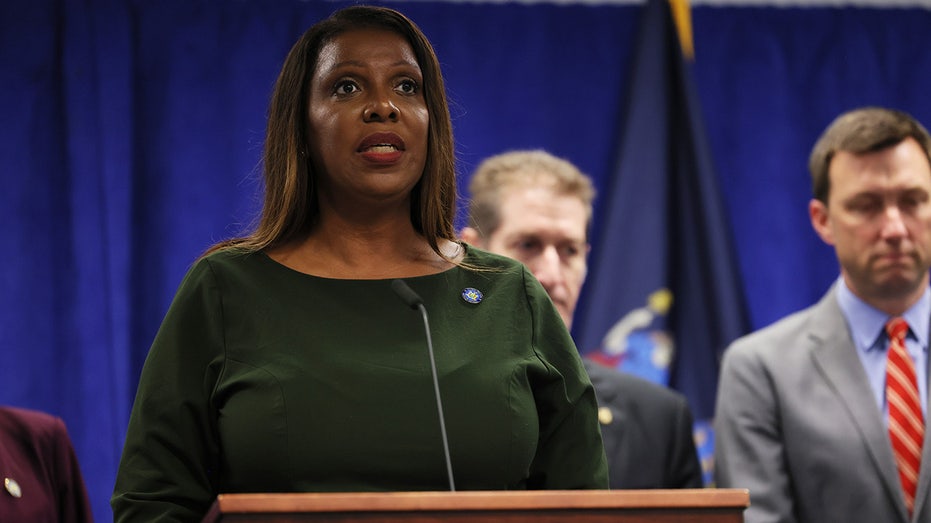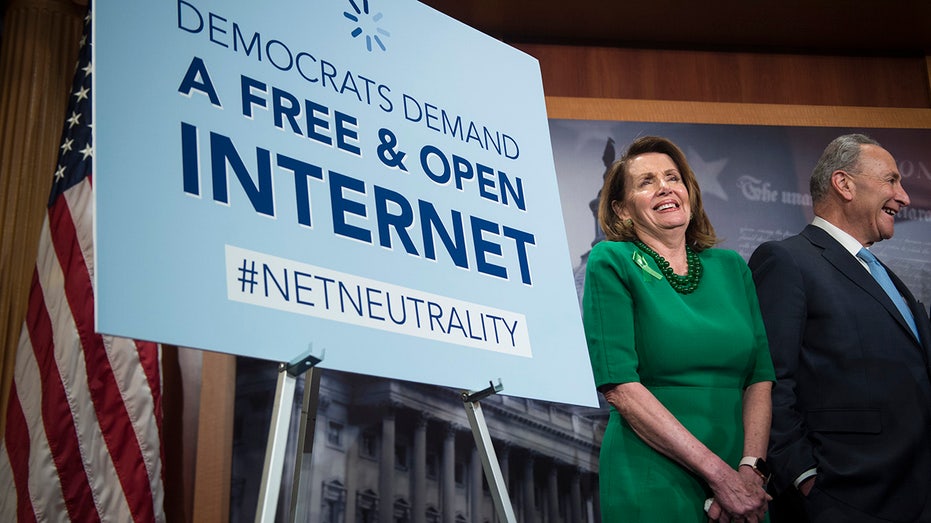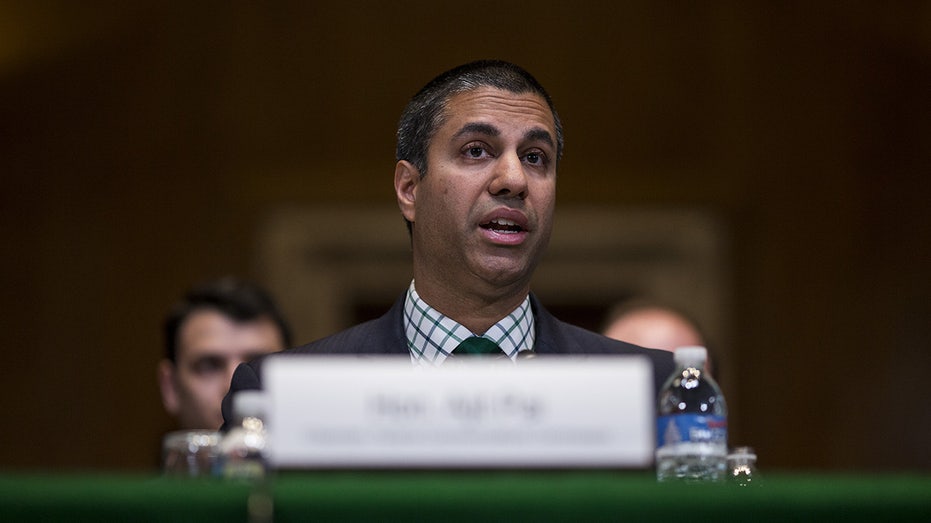'Secret campaign' used thousands of New Yorkers' identities without consent to influence federal policy: NY AG
Millions of consumers' identities used to generate fake public comments and influence FCC to repeal net neutrality in 2017, NY AG Letitia James says
Biden tech adviser worried net neutrality law will end free wireless service access in CA: Gasparino
Charlie Gasparino on net neutrality
Some of the nation’s largest broadband companies funded a "secret campaign" that used identities of millions of consumers without their consent to generate fake public comments and ultimately convince the federal government to repeal net neutrality in 2017, the New York Attorney General's Office said Wednesday, announcing a $615,000 settlement.
New York Attorney General Letitia James on Wednesday secured $615,000 from three companies — LCX, Lead ID and Ifficient — that her office found supplied millions of fake public comments to influence a 2017 proceeding by the Federal Communications Commission (FCC) to repeal net neutrality rules.
Net neutrality prohibits broadband providers from blocking, slowing down or charging companies to prioritize certain content on the internet.
An investigation by the Office of the Attorney General (OAG) found that the fake comments used the identities of millions of consumers, including thousands of New Yorkers, without their knowledge or consent.
GOP LOBBYISTS PUSH EXTENSION OF NET NEUTRALITY PRINCIPLES TO BIG TECH

New York Attorney General Letitia James said a "secret campaign" was used to influence the Federal Communications Commission to repeal net neutrality. (Michael M. Santiago/Getty Images / Getty Images)
Collectively, the three companies have agreed to pay $615,000 in penalties. This is the second series of agreements secured by James with companies that supplied fake comments to the FCC.
"Public comment opportunities are a chance for Americans to give their input on important government policies, and these companies abused that for their own selfish purposes," James said in a statement. "No one should have their identity co-opted by manipulative companies and used to falsely promote a private agenda.
CALIFORNIA'S NET NEUTRALITY MESS THAT IMPERILS VETERANS BEING CLEANED UP BY MAN WHO CREATED THE RULE
"Through this agreement, we are holding three more companies accountable for impersonating Americans without their knowledge or consent. We will always fight to ensure that consumers’ identities are protected and fraudulent companies are stopped."
The millions of generated fake comments were said to have provided "cover" for the FCC to repeal net neutrality rules.

House Minority Leader Nancy Pelosi smiles following a vote that would help stop the Federal Communications Commission's effort to reverse Obama-era regulations on net neutrality May 16, 2018. (Sarah Silbiger/CQ Roll Call / Getty Images)
To help generate these comments, the broadband industry engaged commercial lead generators that used advertisements and prizes, like gift cards and sweepstakes entries, to encourage consumers to join the campaign. However, nearly every lead generator that was hired to enroll consumers in the campaign instead simply fabricated consumers’ responses.
As a result, more than 8.5 million fake comments that impersonated real people were submitted to the FCC, and more than half a million fake letters were sent to Congress, according to the state attorney general's office.
Two of the companies, LCX and Lead ID, were each engaged to enroll consumers in the campaign. Instead, each independently fabricated responses for 1.5 million consumers. The third company, Ifficient, acted as an intermediary, engaging other lead generators to enroll consumers in the campaign. Ifficient supplied its client with more than 840,000 fake responses it had received from the lead generators it had hired.
The investigation also revealed that the fraud perpetrated by the various lead generators in the net neutrality campaign infected other government proceedings as well.

Ajit Pai, the former chairman of the Federal Communications Commission, speaks during a Senate Appropriations Subcommittee hearing May 17, 2018. The FCC repealed net neutrality in 2017. (Zach Gibson/Bloomberg via Getty Images / Getty Images)
GET FOX BUSINESS ON THE GO BY CLICKING HERE
Several of the lead generation firms involved in the broadband industry’s net neutrality comment campaigns had also worked on other, unrelated campaigns to influence regulatory agencies and public officials.
In nearly all of these advocacy campaigns, the lead generation firms engaged in fraud, James' office said in a press release. As a result, more than 1 million fake comments were generated for other rulemaking proceedings, and more than 3.5 million fake digital signatures for letters and petitions were generated for federal and state legislators and government officials across the nation.




















